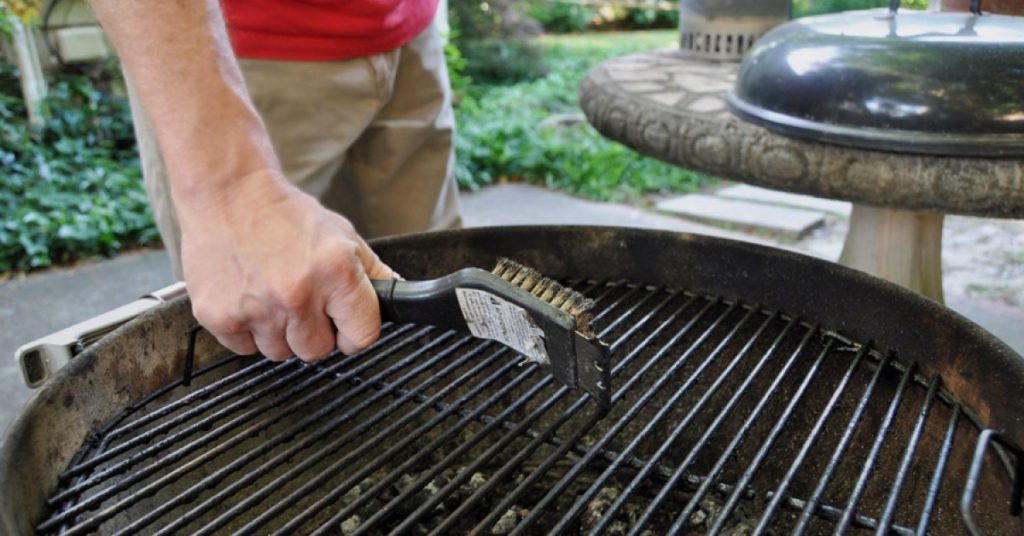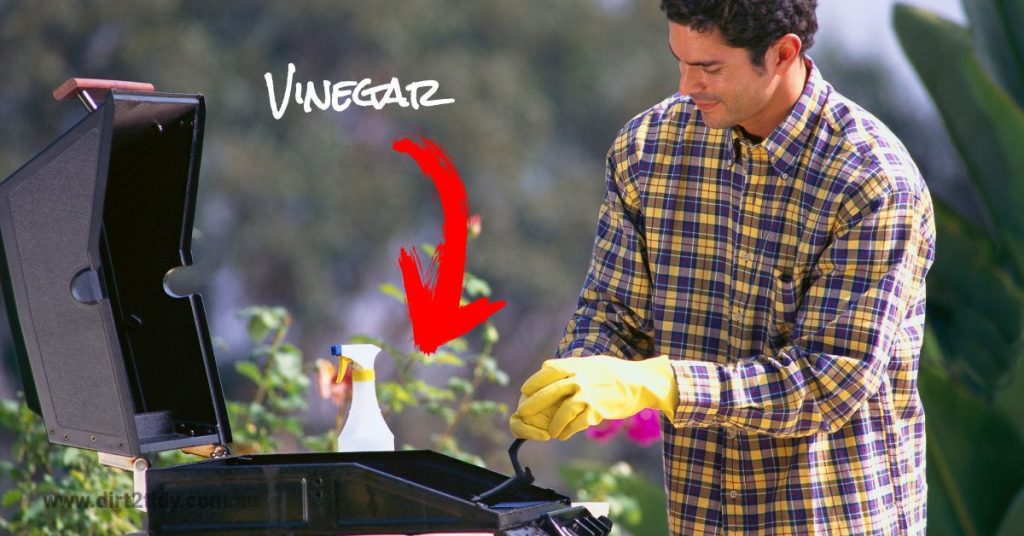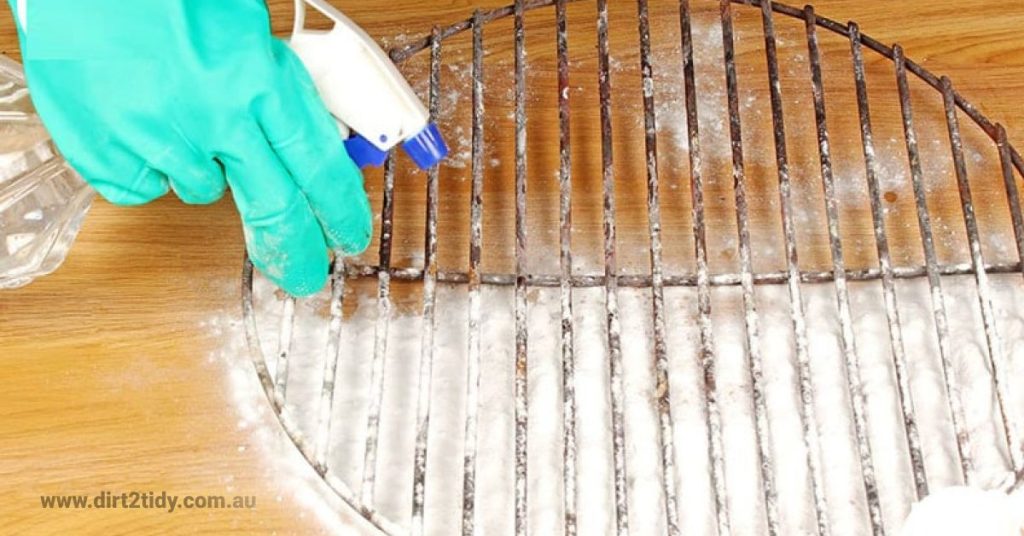Table of Contents
Clean a rusty BBQ grill rack
If you keep your grill in an exposed location, you may find that the charcoal grills have also developed a clean rusty grill grates appearance over time. Rust on the barbecue grill not only has an unattractive appearance but also has the potential to alter the flavor of the delicious food that you grill. The great news is that removing rust from the cast iron grill grates is fairly simple and does not require the use of harsh chemicals.
This is especially common if your grill features cast iron or enamel-coated iron grates. Anyone who’s ever owned cast iron cookware knows that, while these grates deliver fantastic searing and heat retention, even a little bit of moisture left behind can quickly lead to rust spots. It’s a familiar sight for many outdoor cooks: after a rainy night or a humid spell, you lift the lid and discover that telltale orange-brown coating.
While the sight of rust might be discouraging, don’t worry—there are reliable ways to tackle it and restore your grill to its glory, ensuring your next meal tastes as good as it should.
The following is a list of some of our preferred natural cleaning methods for commercial rust removers from the grill grates.
Grill Grate Upkeep
To maintain the attractive appearance of your barbecue, you should clean it frequently and right away after each use. It might seem like a bother, but as soon as you’re done barbecuing, clean the grills with a solution of dish soap and hot water. This can be done quickly and easily.
The longer the grime from burnt food remains on the grills, the more difficult it will be to clean them. It is important to remember to give these same grates a quick wash after each use because this will save time and effort in the long run.
You may also like to read: How do you clean a disgusting BBQ?
Are Rusty Grill Grates Safe to Cook On?
When you open your grill to find rusty grates staring back at you, it’s natural to wonder whether it’s actually safe to cook your next meal. The short answer: it’s best to avoid using rusty grill grates for preparing food.
Rust isn’t just an eyesore; it can be a legitimate health concern. According to both common kitchen wisdom and recommendations from organizations like the USDA, cooking on or with rusty surfaces isn’t considered food safe. While swallowing a tiny flake of rust isn’t likely to send you to the emergency room, it’s still not something you want mixed into your dinner. Over time, rust can harbor bacteria and might also impact the taste of whatever you’re grilling, leaving behind a bitter or metallic aftertaste.
Beyond the safety aspect, rusty grates can actually change the flavor of your food, making those perfectly charred steaks taste less than stellar. And let’s face it—no one is looking to add crunchy, rust-flavored seasoning to their backyard cookout.
The good news? With a little effort, you can restore those grates to their original glory and get back to barbecuing with confidence.
Which Grill Grate Materials Resist Rust Best?
When it comes to keeping rust at bay, not all grill grate materials are created equal. If you’re tired of seeing those familiar orange spots reappear every season, consider upgrading to stainless steel or porcelain-coated grates.
- Stainless steel grates are well-known for their resistance to corrosion. Unlike cast iron, stainless steel doesn’t easily succumb to rust, even if you store your BBQ outdoors. They also have the added bonus of being durable and easy to maintain—just a quick brush after grilling, and you’re good to go.
- Porcelain-coated grates offer another layer of protection. The porcelain enamel acts as a shield against moisture, preventing the metal underneath from rusting as quickly. Just be cautious not to chip the coating with metal tools, as damaged spots may allow rust to form.
If a long-lasting, easy-to-clean grill is what you’re after, these materials are your best bet for resisting rust and ensuring every barbecue starts on a fresh note.
You might be wondering if pellet grills, charcoal grills, or even gas grills are more likely to rust than others. The truth is, the risk of rust mostly comes down to the material the grates are made from and how well you protect them from moisture—not the type of grill itself.
Whether you use a classic Weber kettle, a Traeger pellet smoker, or a no-name charcoal barbecue, all grills are susceptible if exposed to water or humid conditions for extended periods. Stainless steel or porcelain-coated grates are naturally more resistant to rust, while cast iron grates need extra care to stay in top shape.
So, regardless of your grill’s style, proper maintenance and storage are your best defenses against rust. Keep those grates dry, covered, and clean, and you’ll be grilling rust-free no matter your set-up!
Baking soda can be used to remove rust from the grill.
Baking soda is an excellent natural tidier, which can be used to eliminate dirt and grease from the barbecue grill, and it can be done so using this method. To get started, use a gentle brush to scrub as much of the rust as possible from the grates with lemon juice. An up-close view of an old, rusted barbecue grill that has a bed of smoldering charcoal underneath it.

Is It Safe to Cook on Rusty Grill Grates?
Not exactly. While cast iron and enameled grill grates are popular for their heat-retaining abilities, they can be quite prone to rust if exposed to moisture—even just a little. You might wonder if a bit of rust is really a concern or simply another part of the grilling experience.
According to the U.S. Department of Agriculture (USDA), it’s not considered safe to cook on rusty surfaces. Cooking on grates that have developed rust isn’t just unappetizing—it can actually introduce bacteria into your food and, over time, consuming even small amounts of rust isn’t recommended. If any of your grilling surfaces or tools have visible rust, it’s best to address it before preparing your next meal.
Luckily, you don’t need to toss out your trusty grill at the first sign of corrosion. With the right cleaning method, you can safely restore your grates to grilling glory—no harsh chemicals required.
The grate should then be replaced atop the grill. Turn on the barbecue after liberally sprinkling baking soda over the grates of the grill.
The baking soda, when exposed to extreme heat from the barbecue, will cause bubbles to form; the result of this process is the removal of rust from the grill. After the baking powder has finished fizzing, turn off the grill and allow the barbecue to cool down on its own. After that, remove any remaining rust and baking soda residue with a gentle bristle brush.
The recipe for a homemade oven cleaner can be found here. Baking soda is a versatile cleaning product that can even be used to clean your oven. Baking soda is a strong little cleaning product.
Harnessing the Vinegar and Baking Soda Combo
When battling stubborn rust on your BBQ grill grates, reaching for the classic kitchen duo of vinegar and baking soda can be surprisingly effective. This method taps into the bubbling reaction between the two, which helps lift away rust and grease without damaging the metal or relying on harsh chemicals.
Here’s how to put it into action:
- Start by mixing one part baking soda with two parts distilled white vinegar. Stir until it forms a thick, spreadable paste.
- Slather this paste generously over the rusty spots on your grill grates. Let it sit and work its magic for about 15 minutes. You’ll notice some fizzing—that’s normal and means the cleaning process is underway.
- Using a stiff-bristled brush, steel wool, or a sturdy scrubber, vigorously scrub the grates to lift off loosened rust.
- Once satisfied with your scrubbing, rinse the grates thoroughly with warm, soapy water to remove any lingering residue.
- Be sure to dry the grates completely before your next grilling adventure to avoid more rust from forming.
With a little elbow grease (and perhaps a sense of culinary pride), your grill grates can return to their former rust-free glory—ready for your next backyard cookout!
A Rust Remover Made of Vinegar and Salt
White vinegar is a common natural cleaning product that can be used to clean rust and many other things. In a spray bottle, combine two parts vinegar with one part salt. Shake well.
After completely coating the grills in the solution, place them in an old plastic room and throw them there for the night. After leaving the grill grates to soak overnight, wipe them down with an old paper towel to remove any rust residue that may have accumulated.
Utilizing a Wire Brush to Get Rid of Rust
Utilizing a wire brush is going to be the best and fastest technique for extracting rust from the grates of a charcoal grill. Take the grate out of the grill and set it on a flat floor, such as the patio or the driveway. Use the wire brush to remove the rust from the grate, making sure to get between each individual grate as you work.After trying to wipe the grates down with an old paper towel, replace the grates and throw the waste in a garbage bag.

If you notice that your grates are only rusty at the surface and the rust is flaking off, a high-quality grill brush can quickly take care of that superficial rust before you move on to any of the other methods mentioned above. Brushing your grates after each use—especially while they’re still warm—helps prevent dirt, grease, and grime from settling in and keeps your grill in much better condition over time. Regular maintenance with a wire brush not only tackles existing rust but can also stop new rust from forming, making future cleanups a breeze.
Prevent the grill grates from rusting.
By using a cover that is custom-fitted to the barbecue, you can prevent rust from forming on the grates of the grill. This will prevent rust from forming on the barbecue grill by preventing moisture from reaching it.
It is important to clean the grill brush after each use in order to prevent rust from forming. If food grime is allowed to remain on the grates, the grates will rust much more quickly.
After each use, use a paper towel to apply a very thin coating of vegetable oil to the grates and then wipe them clean. Because vegetable oil is water resistant, using it to coat the grill grates will help prevent rusting.
Inspect grill grates for rust during the winter and remove them promptly to prevent further damage. Here are some of our best recommendations for sanitizing and storing your barbeque during the colder months.

A grill rack seen up close and personal
When it comes to preparing fresh meals, keeping the grates of your grill clean and free of rust is of the utmost importance. After all, no one wants their barbeque ribs to have a rusty flavor. It is not difficult to remove rust from a barbecue grill, and following our maintenance advice can even prevent rust from forming. If you don’t have the time, Oven clean provides a professional deep barbecue cleaning service. If you don’t have the time, Oven clean provides a deep barbecue cleaning service. Even better, the use of harmful cleaning products is not required because Oven cleans one-of-a-kind no-added caustic-soda barbecue cleaning system is used instead.






